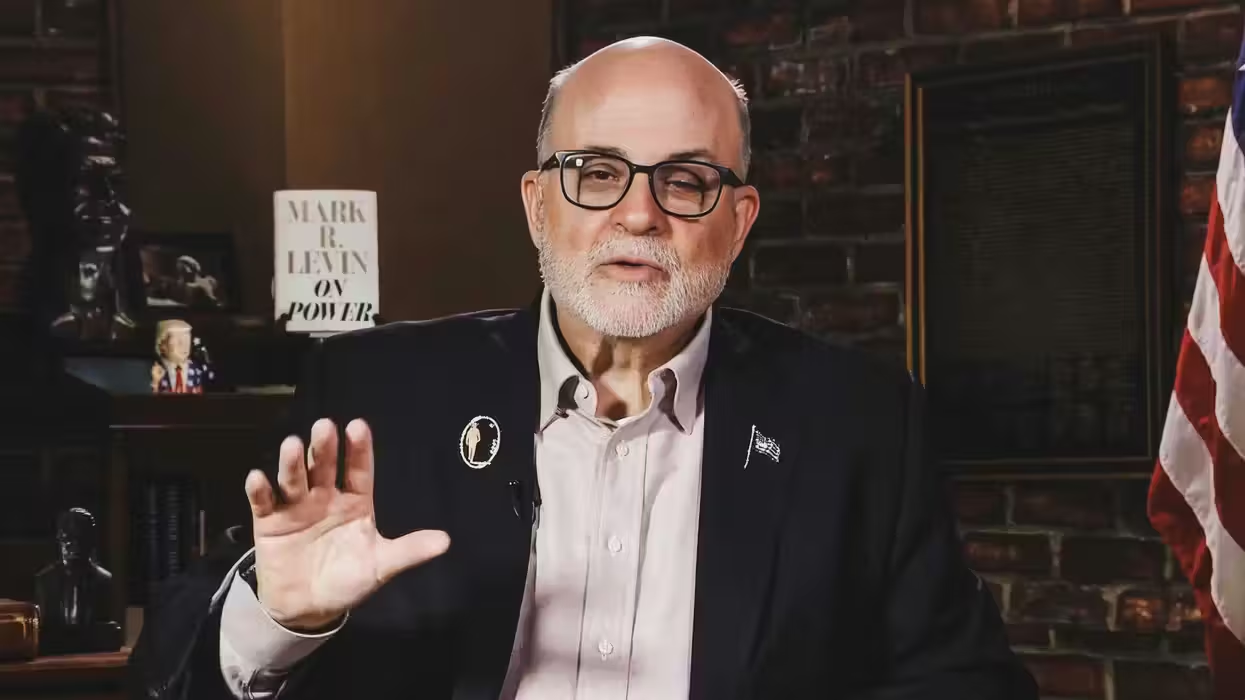As a homeschooled Christian growing up in the 1990's, I learned to refute the arguments of moral relativism before I learned algebra. It was, after all, the great moral threat of my childhood.
 Pro-choice activists participate in a 'Rise Up for Roe' rally outside the U.S. Supreme Court during the 2016 March for Life event January 22, 2016 in Washington, DC. The annual March for Life event marked the anniversary of the Supreme Court Roe v. Wade ruling in 1973. (Alex Wong/Getty Images)
Pro-choice activists participate in a 'Rise Up for Roe' rally outside the U.S. Supreme Court during the 2016 March for Life event January 22, 2016 in Washington, DC. The annual March for Life event marked the anniversary of the Supreme Court Roe v. Wade ruling in 1973. (Alex Wong/Getty Images)
I remember listening to debates between Christian apologists and atheists arguing the merits of moral relativism, and feeling certain that the “anything goes” appeal of its message would mark it as the final landing place of an increasingly hedonistic western culture.
And for a while, it did.
The sexual revolution had sputtered to an inglorious end rife with STDs and broken families, my parents scarcely remembered prayer in schools, and Christianity in America had already begun its steep decline into the twin canyons of apathy and apostasy.
The Clinton years saw a surge in moral subjectivism, as the political left wagged their fingers at “judgmental” Christians and insisted that character really didn’t matter in public office (a lesson conservatives now seem to have taken to heart). Popular television shows mocked the outdated and nonsensical views of religious characters, and empathy emerged as the lauded alternative to moral absolutes.
The new millennium saw relativism rise to prominence quickly as the leading philosophical challenge to the traditional values of the moral majority that elected President George W. Bush and pushed through his package of well-intentioned but disastrous policies.
The left framed the battle as one of faith against science, and it was this “stop cramming your religion down my throat” tolerance army that swept President Obama to power in 2008. Since then, moral relativism has been king of the philosophical hill in pop culture.
Tolerance became the ultimate virtue, and intolerance the only vice.
Christian objectivists like myself dug in and fought to drag truth back into a culture that denied even the most obvious absolutes. We declared that moral relativism was a self-defeating idea, and that no society could sustain itself without a common acceptance of basic moral principles.
But few of us likely could have predicted that the death of relativism would come at the hands of a new religion.
The other day I was rumbling with some liberal commenters on abortion restrictions (hey, everyone gets bored sometimes) and ran across a bona fide moral relativist making the case that loving your child and killing your child are actually morally equivalent. But as I prepared a typical response, it occurred to me that it had been a long, long time since I had actually been confronted with such idiocy.
In fact, it had been a long time since anyone had even suggested moral relativism to me as a defense.
Most of the arguments sprouting up were not of moral equivalence, but of religiously dogmatic condemnation.
As it turns out, the once-ubiquitous “do what’s right for you, man” and “judge not” folks were merely the larval stage of what is now rapidly rising to dominance within the ranks of liberalism – the Social Justice Warrior.
Moral relativism may have spawned the social justice movement, but the two ideologies are on a collision course that will soon threaten the identity of social liberalism.
Much of the focus in recent years has been on the Republican identity crisis – a struggle that has been redefined by Donald Trump’s success in replacing ideological conservatism with right-wing populism.
But while many of us have carefully tracked the years-old schism in the ideological base of the GOP, few on our side have bothered looking across the aisle to witness the unanticipated knock-down-drag-out exploding between the presumptive Democratic nominee Hillary Clinton’s liberal establishment and Sen. Bernie Sanders’ socialist insurgency.
As frequently as conservatives accuse the left of being beholden to special interests and identity politics, it should be noted that the most significant ideological debate taking place in the 2016 election – by far – is between holdout liberal relativists and the army of millennial SJWs feeling the Bern.
And the old-school liberals are losing ground. Even as he lost the nomination to Clinton, Bernie’s grassroots movement boasted 200,000 volunteers and seven million individual donations. But perhaps Sanders' most important accomplishment has been upending the liberal narrative on social justice.
The tolerance creed has been left behind, and the grand inquisitors of the equality movement now pursue absolutism with the same kind of righteous fervor their relativist predecessors worked so hard to mock and discredit.
The moral ambiguity that sheltered the development of their convictions on race, gender, speech, freedom, and equality has now been shed in favor of a violent insistence upon ideological conformity.
It becomes obvious when you talk to some of these folks and realize that by substituting a couple words, you can magically transform a young Bernie supporter into precisely the kind of religious zealot they despise.
Replace “government” with “God,” “legal” with “righteous,” “science” with “scripture,” and “hate” with “sin,” and you’ll soon find that the militantly liberal atheist you’re talking to is actually quite the believer, and that your conversion – not your tolerance – is the goal of the discussion.
Social justice warriors aren’t interested in comparing worldviews over a cup of coffee. They intend to dominate, not tolerate.
The oft-noted polarization problem in American society – exacerbated by social media cliquishness and the death of analog conversation – has produced more than just ideological seclusion. It has radically shifted the hierarchy of virtues in the American psyche.
The millennial battle for influence takes place online, in comment sections, Reddit threads, and Facebook wars in which combatants are guaranteed only a few seconds of a reader’s time.
Urgency, hyperbole, and passion are the most powerful weapons in the arsenal of the opinionated now. Moderation and reasonability – along with their long-deceased cousins, decency and respect – are obsolete in the age of Buzzfeed.
Strong and cohesive belief systems like Christianity and Islam have exposed the inherent ethical weakness of the relativistic worldview, and liberalism has been forced to synthesize a replacement for something that atheism doesn’t provide: Conviction.
SJWs have returned conviction to liberalism, but they can’t logically compete without the foundational presuppositions that undergird such conviction in other faiths.
As a result, a lot of millennials are left cobbling together a worldview from the philosophical wreckage left in the blast radius of relativism, and attacking any perceived threat to their newly-revealed dogma.
This porous network of beliefs has no logical cohesion at all, but rather borrows tenets from a number of religions and philosophies – without bothering to reconcile the obvious contradictions between them.
Thus, the conviction manufactured by the equality clergy is not meant to bolster their underlying rationale, but to replace it. Their faith has been divorced from reason in exactly the same fashion that relativists accused Bible-thumping Christians of doing.
The demise of relativism and the rise of the SJW movement exposes the culture war for what it has been all along – a battle of faiths.
–
TheBlaze contributor channel supports an open discourse on a range of views. The opinions expressed in this channel are solely those of each individual author.


 Pro-choice activists participate in a 'Rise Up for Roe' rally outside the U.S. Supreme Court during the 2016 March for Life event January 22, 2016 in Washington, DC. The annual March for Life event marked the anniversary of the Supreme Court Roe v. Wade ruling in 1973. (Alex Wong/Getty Images)
Pro-choice activists participate in a 'Rise Up for Roe' rally outside the U.S. Supreme Court during the 2016 March for Life event January 22, 2016 in Washington, DC. The annual March for Life event marked the anniversary of the Supreme Court Roe v. Wade ruling in 1973. (Alex Wong/Getty Images)






